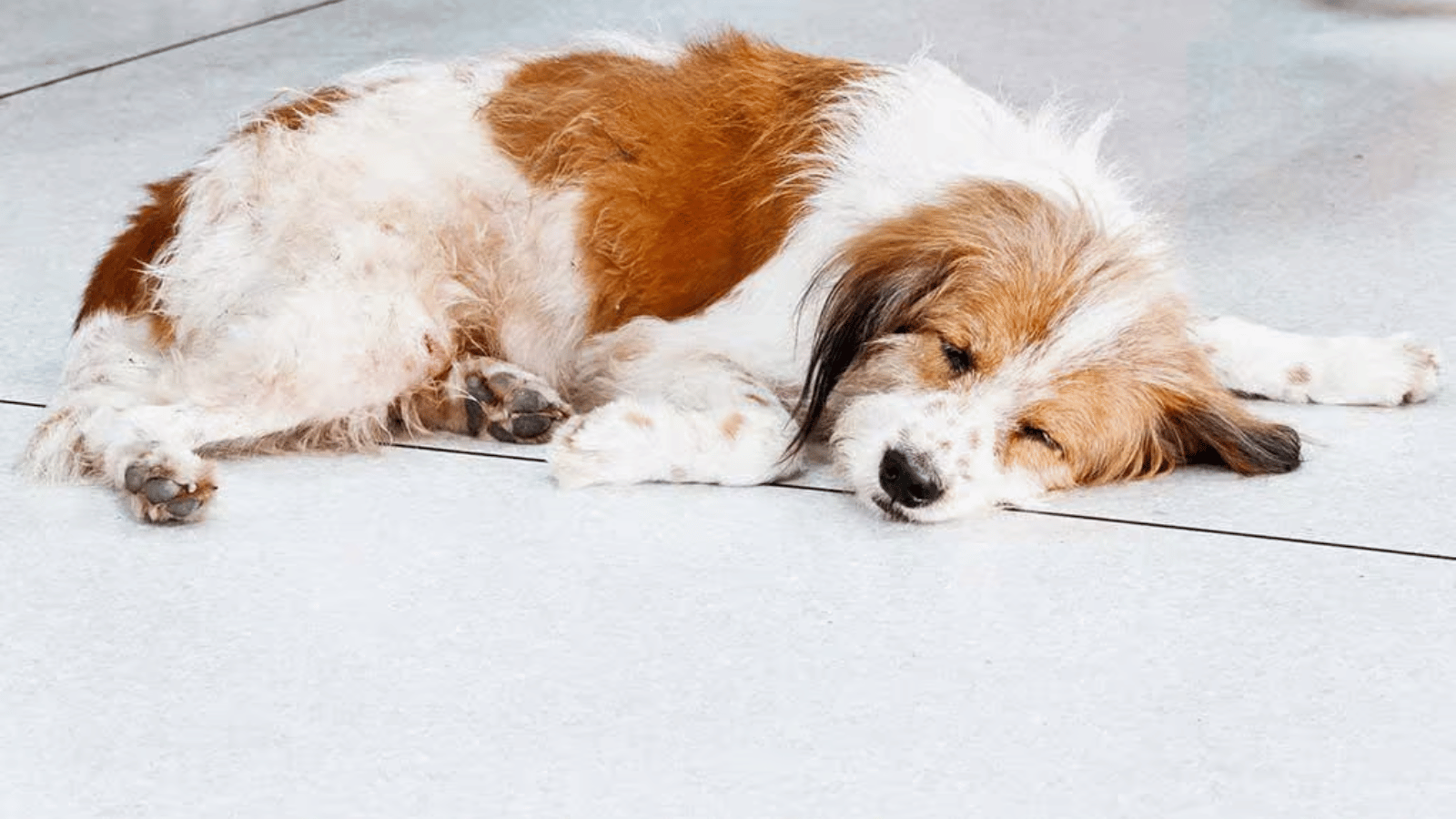Uncovering the Hair-Raising Link Between Vitamin Deficiency and Doggy Baldness
This article discusses the common causes of hair loss in dogs, including vitamin deficiencies, and what pet owners can do to help their pup maintain healthy skin and coat. Vitamin deficiencies are one of the most common causes of hair loss in dogs, such as B vitamins, Vitamin A, Vitamin E and essential fatty acids. To prevent hair loss from occurring due to a vitamin deficiency, pet owners should adjust their dog's diet to include foods rich in vitamins and minerals, healthy fats and oils, and avoid allergens. It is also important to consult with a veterinarian if necessary.
What Vitamin Deficiency Can Cause Hair Loss in Dogs?
Introduction
Hair loss can be a sign of a vitamin deficiency in dogs. While it may not always be the case, it is important to understand what vitamin deficiencies can cause hair loss and how to prevent it from happening. In this article, we will discuss the common causes of hair loss in dogs, including vitamin deficiencies, and what you can do to help your pup maintain healthy skin and coat.

Common Causes of Hair Loss in Dogs
- Senior Dogs: As they age, some senior dogs may experience thinning or bald spots due to hormonal changes.
- Cushing’s Disease: This condition is caused by an overproduction of cortisol hormones in the body and can lead to hair loss.
- Fatty Acids: Essential fatty acids are essential for healthy skin and coat. A deficiency in these fatty acids can lead to dry skin and hair loss.
- Skin Conditions: Certain skin conditions such as mange or allergies can also cause hair loss.
Vitamin Deficiencies That Lead To Hair Loss In Dogs
Vitamin deficiencies are one of the most common causes of hair loss in dogs. A lack of vitamins can cause the dog's fur to become brittle and fall out easily. The following are some of the most common vitamin deficiencies that lead to hair loss in dogs:
- B Vitamins: A lack of B vitamins such as biotin, pantothenic acid, B6, and B12 can cause dryness and breakage of the dog's fur as well as bald spots.
- Vitamin A : A lack of Vitamin A leads to a decrease in sebum production which is necessary for keeping the coat healthy. This can lead to dryness and breakage.
- Vitamin E : A lack of Vitamin E leads to decreased blood flow which prevents nutrients from reaching the scalp and follicles leading to weak follicles which then leads to hair loss.
- Essential Fatty Acids : A deficiency in essential fatty acids such as Omega-3s or Omega-6s decreases sebum production which causes dryness leading to breakage and shedding.
Dietary Changes To Prevent Hair Loss In Dogs
If your dog is experiencing hair loss due to a vitamin deficiency or any other reason, there are some dietary changes you can make that may help prevent further shedding. Here are some tips for maintaining a healthy diet for your pup:
- Adjust Your Dog’s Diet :
- Include Foods Rich In Vitamins And Minerals :
- Include Healthy Fats And Oils :
-
Avoid Allergens :
It is also important that you consult with your veterinarian if you suspect that your dog has a vitamin deficiency or any other health issue causing their hair loss. They will be able to diagnose any underlying medical conditions that could be causing the problem and provide advice on how best to treat them.
In conclusion, it is important for pet owners to recognize when their dog may have a vitamin deficiency causing their hair loss so that they can take steps towards preventing further shedding by making dietary changes or seeking medical treatment if necessary.
Related Article: What Breed of Dog is Bolt?
Conclusion
Hair loss in dogs can have many causes including vitamin deficiencies. It is important for pet owners to recognize when their dog may have a vitamin deficiency causing their hair loss so that they can take steps towards preventing further shedding by making dietary changes or seeking medical treatment if necessary.Frequently Asked Questions
What is the best vitamin for hair loss in dogs?
If your dog's hair loss is due to a vitamin deficiency, supplementing his diet is a good home remedy for dog hair loss. Vitamin E and A as well as fish oil can help with dry skin or some infections.
Can vitamin D deficiency cause hair loss in dogs?
Vitamin D deficiency in dogs can cause heart failure, muscle aches, muscle weakness, bone pain, hair loss, fatigue, poor wound healing, and/or lethargy. The most significant signs of vitamin D deficiency in dogs are those of heart failure.Oct 31, 2019
How can I treat my dog's hair loss?
Thyroid medication and hormone therapy can reverse hair loss in hormonal and endocrine disorders. Vitamin E, Vitamin A and fish oil supplements may be recommended for pets with certain conditions or a predisposition to dry skin or skin infections.
How do I know if my dog has a vitamin deficiency?
Deficiency can show in lethargy, excessive thirst, excessive drooling, joint disease and weight loss. A test must always be given as high dose can be dangerous.May 4, 2020
What can I feed my dog to prevent hair loss?
Thankfully, by making simple changes to their diet you can help prevent excess shedding. Ensuring they have a balanced diet of raw, lean meats, fresh fruit and vegetables, and no starchy foods can help. So can supplementing your dog's diet with the omega-3 goodness of oils. Sep 15, 2017
What should I feed my dog for hair loss?
This safe vitamin has no known side-effects and has been found to improve the condition of dry, itchy skin. A deficiency in biotin can result in alopecia (hair loss). Sources of Biotin for dogs include: meat, liver, oily fish, and egg yolk. riboflavin Riboflavin is also known as vitamin B2.

